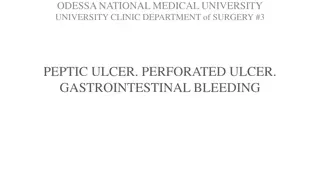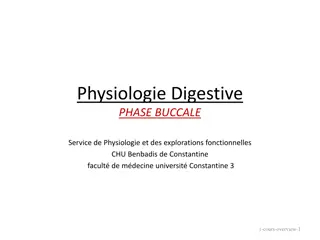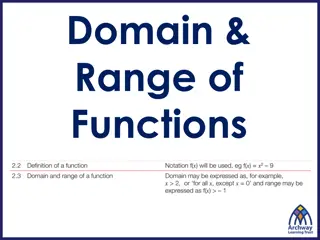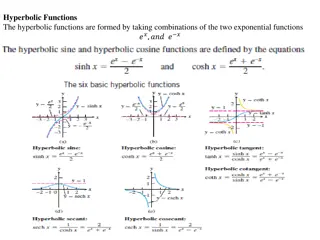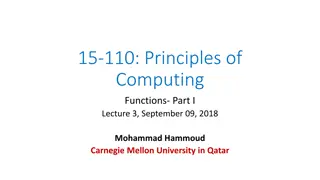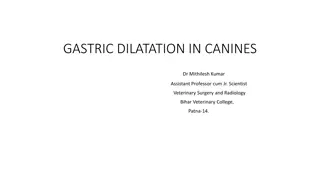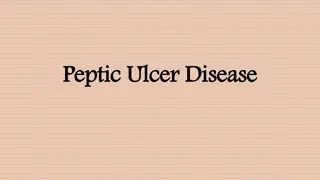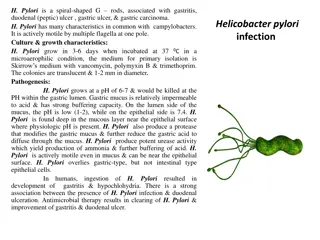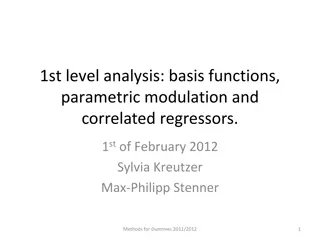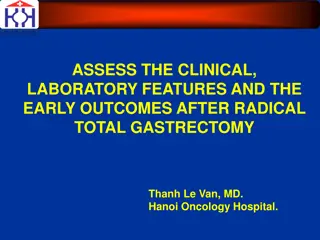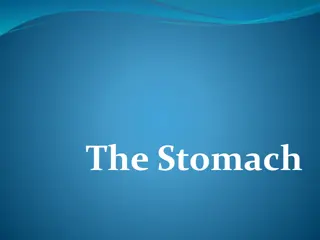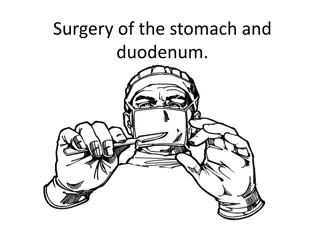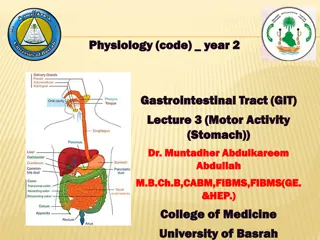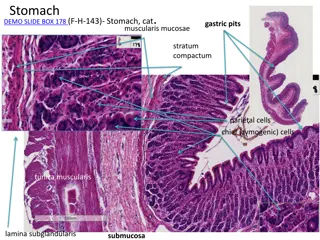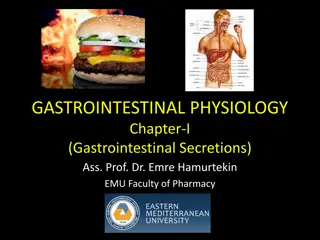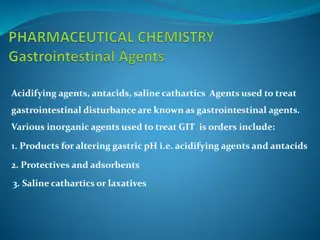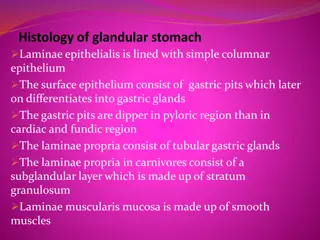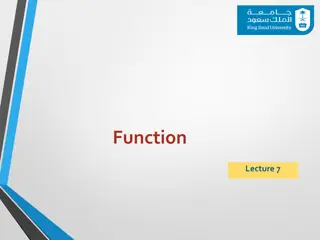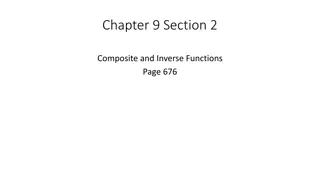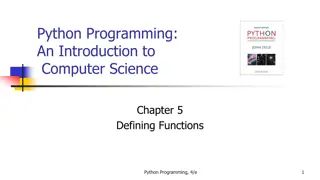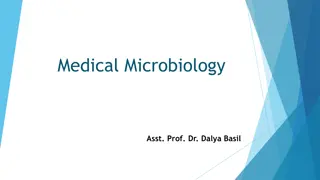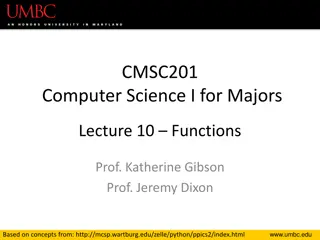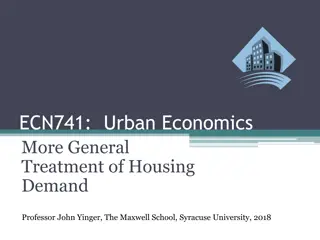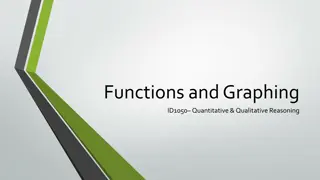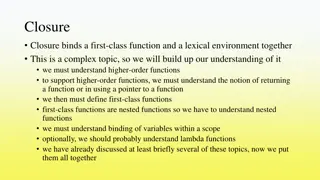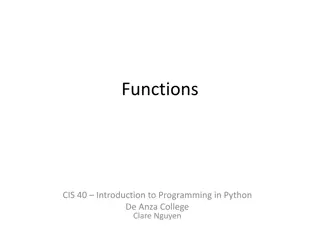Understanding Peptic Ulcer Disease: Causes, Symptoms, and Treatment
Peptic ulcer disease (PUD) involves ulcerations in the duodenal or gastric mucosa caused by factors like Helicobacter pylori infection and NSAID use. Symptoms include abdominal pain and nausea, and treatment often involves H. pylori eradication and proton pump inhibitors to prevent complications lik
1 views • 77 slides
Understanding Pointers and Functions in C++ Lecture
Exploring the concept of pointers and functions in C++, this lecture covers the basics of functions, passing arrays to functions, and understanding how pointers can be used in functions to manipulate data. Attendees will learn about passing entire arrays and returning multiple values using pointers.
10 views • 45 slides
Physiologie Digestive PHASE BUCCALE
Digestive physiology involves the breakdown of food into simple nutrients for absorption by the body. It includes mechanical and chemical means of food degradation using enzymes from salivary, gastric, pancreatic, and colonic bacteria. The digestive system comprises the mouth, esophagus, stomach, li
4 views • 25 slides
Key Benefits of Gastric Sleeve Surgery for Weight Loss
Choose Healthy Life Bariatrics for gastric sleeve surgery. It is renowned for its effectiveness in promoting significant and sustained weight loss. This procedure limits food intake, reduces hunger, and alters hormonal signals related to hunger and fullness.
6 views • 11 slides
Livestock Marketing Functions and Classification
Livestock marketing involves various functions such as exchange, physical supply, facilitative functions like grading, transportation, storage, and more. These functions are classified into primary, secondary, and tertiary functions based on their roles. Assembling, processing, distribution, and equ
3 views • 23 slides
Understanding Domain and Range of Functions
Understanding functions involves exploring concepts such as domain, range, and algebraic inputs. This content covers topics like constructing functions, common functions like quadratic and trigonometric, and solving functions based on given domain and range. It also provides practice questions to te
1 views • 21 slides
Understanding Gastric Motility and Secretion in the Stomach
This content delves into the intricate workings of the stomach, focusing on its motor functions, anatomical and physiological divisions, gastric reservoir, storage and mixing functions, and relaxation reflexes. It emphasizes the key roles of the stomach in storing and preparing food for digestion, a
0 views • 47 slides
Understanding Hyperbolic Functions and Their Inverses
This content delves into the world of hyperbolic functions, discussing their formation from exponential functions, identities, derivatives, and inverse hyperbolic functions. The text explores crucial concepts such as hyperbolic trigonometric identities, derivatives of hyperbolic functions, and integ
0 views • 9 slides
Understanding Gastric Motility and Secretion in the Stomach
The stomach plays a crucial role in food processing, acting as a reservoir, preparing chyme for digestion, and facilitating absorption. Divided anatomically and physiologically, it functions as a storage unit and mixing chamber for food. Key motor functions include storage, preparation for digestion
0 views • 49 slides
Understanding Functions in Python: Basics and Usage
In this lecture on functions in Python, the focus is on the basics of defining and using functions. The session covers the formal definition of functions, parameters, local and global scopes of variables, return values, and pass-by-value concept. It emphasizes the importance of proper indentation in
1 views • 28 slides
Understanding Gastric Dilatation in Canines: Causes, Symptoms, and Treatment
Gastric Dilatation and Volvulus (GDV) syndrome, commonly known as bloat, is a serious condition in dogs where the stomach dilates and twists, leading to life-threatening consequences. Large breeds, especially deep-chested dogs, are more prone to GDV. The exact cause of GDV is unknown, but factors li
0 views • 27 slides
Understanding Functions: Tables, Graphs, and Formulas Based on Functions, Data, and Models
Explore the world of functions through tables, graphs, and formulas in this presentation based on the book "Functions, Data, and Models" by S.P. Gordon and F.S. Gordon. Learn how functions in the real world work, understand the relationship between variables, and see different representations of fun
0 views • 29 slides
Understanding Peptic Ulcer Disease and Dyspepsia: Causes and Pathogenesis
Peptic ulcer disease and dyspepsia are common gastrointestinal conditions. Dyspepsia presents with upper abdominal pain and may or may not be associated with peptic ulcers. The most prevalent causes of dyspepsia include non-ulcer dyspepsia, GERD, and peptic ulcers. Peptic ulcers account for a signif
0 views • 24 slides
Understanding SQL Functions for Database Queries
SQL functions are essential elements in performing actions and obtaining results in a database query. They come in two main types: scalar functions and aggregate functions. Scalar functions operate on single values, while aggregate functions operate on sets of data. Examples of SQL functions include
0 views • 14 slides
Helicobacter Pylori: Characteristics, Pathogenesis, and Diagnosis
Helicobacter pylori is a spiral-shaped Gram-negative bacterium associated with various gastrointestinal conditions like gastritis, duodenal ulcers, gastric ulcers, and gastric carcinoma. It exhibits unique characteristics in common with Campylobacters and has specific culture and growth requirements
0 views • 5 slides
Understanding Basis Functions and Hemodynamic Response Functions in fMRI Analysis
This content discusses the use of basis functions, parametric modulation, and correlated regressors in the first-level analysis of fMRI data processing. It delves into the concept of temporal basis functions for modeling complex functions of interest, such as the canonical hemodynamic response funct
1 views • 26 slides
Clinical and Laboratory Features of Radical Total Gastrectomy: Early Outcomes
Assessing the clinical and laboratory features, as well as the early outcomes following radical total gastrectomy is crucial in the management of gastric cancer. This study conducted at Hanoi Oncology Hospital retrospectively analyzed 43 patients who underwent this procedure. The overview includes d
0 views • 27 slides
Understanding the Anatomy and Function of the Stomach
The stomach is a vital organ in the digestive system with functions like food storage, mixing with gastric secretions, and controlling chyme delivery to the small intestine. It has a J-shaped structure with various parts like the fundus, body, antrum, and pylorus. The lesser and greater curvatures,
0 views • 21 slides
Understanding Functions in Coding with Minecraft
Functions in coding are self-contained sets of instructions that perform specific tasks within a computer program. They allow for code reuse and save time by writing instructions once as a function and calling it whenever needed. This content covers the purpose of functions, how they save time when
0 views • 30 slides
Overview of Stomach Surgery and Treatment Options
The stomach plays a crucial role in digestion and is divided into four regions - cardia, fundus, body, and pyloric part. Understanding the anatomy of the stomach is essential for surgical interventions, including treatment for benign and malignant gastric diseases like peptic ulcer disease. Surgical
0 views • 30 slides
Gastric Motility and Secretion in the Stomach: Functions and Division Overview
The stomach plays crucial roles in food storage, chyme preparation, water absorption, and slow emptying into the small intestine. Its motor functions include maintaining a reservoir, mixing food, and facilitating relaxation reflexes for optimal digestion. Anatomically and physiologically, the stomac
0 views • 46 slides
Digestive System Clicker Questions
Explore interactive clicker questions related to the human digestive system, covering topics such as bariatric surgery, accessory organs, food passage, macromolecule breakdown, stomach functions, enzyme action, nutrient absorption, and gastric bypass surgery.
0 views • 13 slides
Understanding Gastric Motility and Function in the Gastrointestinal Tract
The stomach plays a crucial role in digestion, from storage and mixing of food to slow emptying of chyme into the duodenum. Gastric motility involves peristalsis and retropulsion, essential for propelling food towards the pylorus. Dr. Muntadher Abdulkareem Abdullah provides valuable insights into th
0 views • 13 slides
Various Stomach Anatomy Slides of Different Animal Species
Explore a series of detailed histological slides showcasing the stomach anatomy of different animal species including cats, rabbits, dogs, pigs, sheep, and goats. The images highlight key features such as gastric pits, mucosal layers, chief and parietal cells, proper gastric glands, cardiac and pylo
0 views • 29 slides
Overview of Gastrointestinal Secretions and Structural Considerations
In this informative presentation by Assistant Professor Dr. Emre Hamurtekin, the focus is on gastrointestinal secretions including salivary, gastric, pancreatic, biliary, and intestinal fluids. Structural considerations such as the surface area for absorption, sphincters, villi, and crypts are discu
0 views • 33 slides
Understanding Gastrointestinal Agents: Acidifying Agents, Antacids, Saline Cathartics
Gastrointestinal agents such as acidifying agents, antacids, and saline cathartics are used to manage gastrointestinal disturbances. Acidifying agents like Hydrochloric Acid aid in gastric digestion, while antacids help reduce gastric acidity. Saline cathartics are used as laxatives. Achlorhydria, a
0 views • 36 slides
Structure of Gastric Mucosa in Glandular Stomach
The glandular stomach features laminae epithelialis lined with simple columnar epithelium, leading to differentiation into gastric pits and glands. The laminae propria houses tubular gastric glands, while the laminae muscularis mucosa is composed of smooth muscles. Different regions exhibit distinct
0 views • 14 slides
Understanding Composition of Functions in Mathematics
Learn how to perform operations with functions, find composite functions, and iterate functions using real numbers. Explore the composition of functions through examples and understand the domain of composite functions. Enhance your mathematical skills by mastering operations like addition, subtract
0 views • 10 slides
Understanding Functions in C Programming
Functions play a vital role in C programming by enabling the execution of specific tasks. They can be pre-defined or user-defined, offering flexibility and efficiency in code organization and execution. Pre-defined functions are already available in C libraries, while user-defined functions are cust
0 views • 46 slides
Understanding Composite and Inverse Functions
Learn about composite functions, inverse functions, and how to find their compositions and inverses through examples and step-by-step explanations. Explore the concept of forming composite functions, verifying inverse functions, and finding the inverse of a function using interchange and solving met
0 views • 15 slides
Introduction to Defining Functions in Python Programming
This chapter introduces the concept of defining functions in Python programming. It covers the importance of dividing programs into sets of cooperating functions, defining new functions in Python, understanding function calls and parameter passing, and reducing code duplication through the use of fu
0 views • 78 slides
Understanding Helicobacter pylori: Morphology, Pathogenesis, and Identification
In this detailed lecture, Assistant Professor Dr. Dalya Basil discusses the characteristics, identification methods, growth characteristics, and pathogenesis of Helicobacter pylori. This spiral-shaped, gram-negative rod bacterium is associated with various gastric conditions, including gastritis, ul
1 views • 23 slides
Understanding Functions in Computer Science I for Majors Lecture 10
Expanding on the importance of functions in programming, this lecture delves into dividing code into smaller, specific pieces, defining functions in Python, understanding function calls and parameter passing, and using functions to enhance code modularity. Key topics covered include control structur
0 views • 62 slides
Understanding Housing Demand Theory in Urban Economics
Explore the nuances of housing demand theory in urban economics, covering topics such as alternative utility functions, exponential density functions, maximizing bid functions, and comparative statics. Delve into Stone-Geary and CES utility functions, their implications on demand functions, and the
0 views • 35 slides
Understanding Functions and Graphing in Mathematics
Functions and graphing play a crucial role in quantitative and qualitative reasoning. We explore the concept of points on a graph, coordinates, relations, functions, and ways to express functions. Utilizing visual aids and analogies, we delve into the importance of coordinates, the distinction betwe
0 views • 10 slides
Comprehensive Overview of Oesophageal and Gastric Cancer: Roles and Statistics
This content delves into Oesophageal and Gastric Cancer, exploring statistics, risk factors, common signs and symptoms, and the role of Oesophago-Gastric Clinical Nurse Specialists. It highlights the prevalence, age factors, survival rates, and key risk factors such as smoking, alcohol, and diet. Th
0 views • 6 slides
Understanding Closures, Lambda Functions, and Higher-Order Functions in Programming
In programming, closures bind functions and lexical environments, while lambda functions are nameless and used by higher-order functions. Higher-order functions operate by applying other functions, such as map and fold functions. Example implementations in LISP demonstrate how these concepts are uti
1 views • 16 slides
Introduction to Python Functions: Overview and Usage
In this module, we delve into Python functions, exploring common built-in functions and how to create custom functions. We learn the properties of functions, how to coordinate multiple functions, and concepts of modularization. Discover the essence of functions in Python programming through practica
0 views • 17 slides
SWAG Network Oesophago-gastric Cancer Research Update
SWAG Network Oesophago-gastric (OG) Cancer Clinical Advisory Group provided a research update on Upper GI Cancer Studies, National Recruitment data, and Regional Recruitment trends in the UK. The update included information on open cancer studies, sample sizes, recruitment statistics, and participat
0 views • 16 slides
Understanding Functions in C Programming
Functions play a crucial role in C programming, allowing for modularity and reusability of code. This content covers the basics of functions, creating custom functions, passing arguments, returning values, and the anatomy of a C function. Learn about defining functions, passing arguments effectively
0 views • 24 slides
